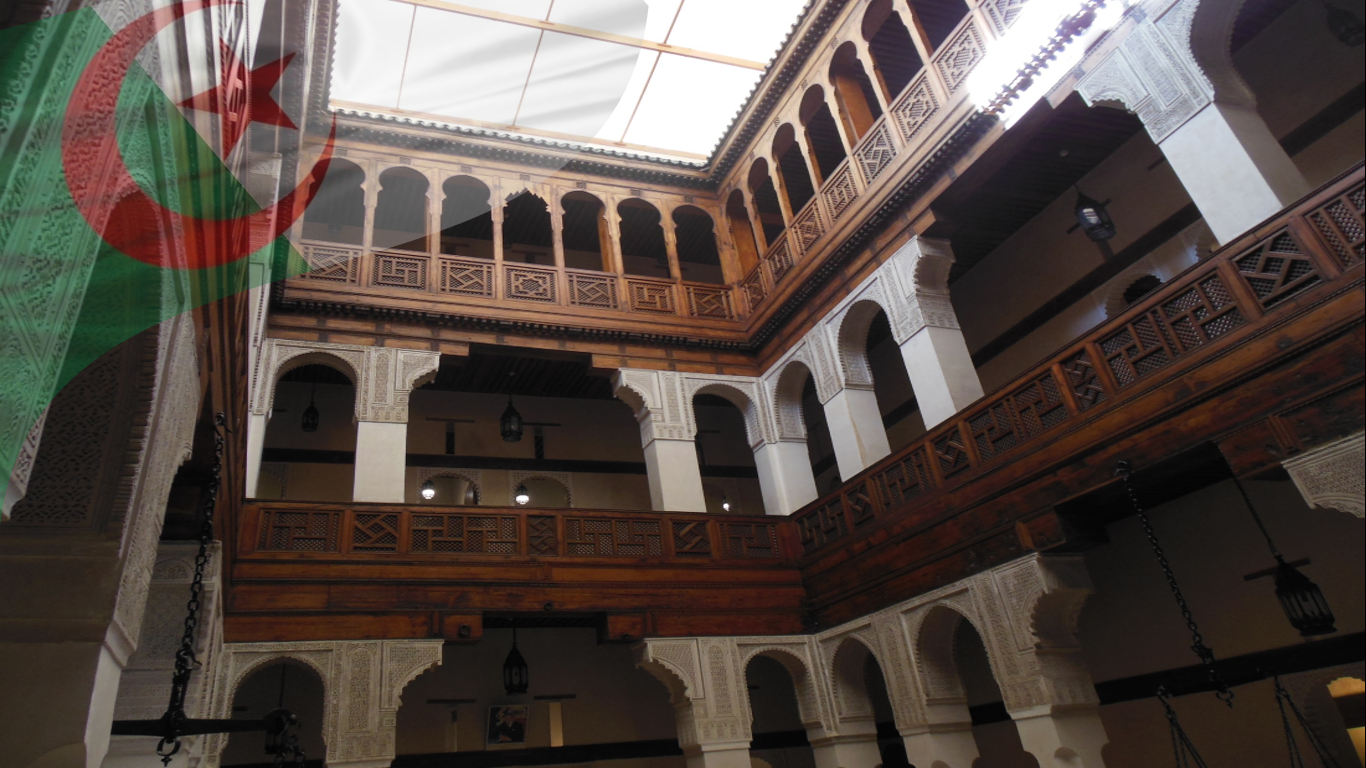https://www.almayadeen.net/news/politics/إضراب-في-قطاع-الخدمات-العامة-والشركات-الحكومية-في-تونس
Source: Agencies 16 June 07:51
The General Tunisian Workers’ Union carries out a general strike in a step to increase the pressure on President Qays Sa‘īd and his administration in the country, which overall suffers from a suffocating political and financial crisis.
The general strike started today, for which the General Tunisian Workers’ Union called for in the public service sector and at the public companies.
Deputy Secretary-General of the Workers’ Union Sāmī aṭ-Ṭāhirī said that all general, or sectoral associations involved in the strike in their own announcements outlined the schedule of the strike and the steps taken to secure the minimum services.
The General Tunisian Workers’ Union holds a work strike in the public sector in response to the refusal by the government to the demands to increase the wages of the workers and the clerks, and this is a step to increase the pressure on President Qays Sa‘īd and his administration in a country overall suffering from a suffocating political and financial crisis.
The Union in a statement called for stopping work in some 160 institutions spread across most of the economic sectors in the county, employing some 3 million employees.
The statement explained that the aim of the workers’ strike “is the defense of their economic and social rights after the government failed to answer to their lawful demands and disregarded a message issued on 31 May warning with a strike”.
It is expected that the strike will involve the transport, traffic, communications, postal services, and educational facilities’ sectors, thus including the schools and the universities. Also, all movement in the airports around the country and all maritime movement will stop at a time, when Tunisia reopened the tourist season.
In response to the Union’s persistence to move forward with the strike official spokesman of the government and also Minister of Transport Naṣr ad-Dīn an-Naṣībī said on Wednesday that a certain amount of workers will be unitized to secure the minimum level for services for the citizens.
Despite that the leadership of the Union confirmed that the decision about the strike is “not political”, this step comes at the same time with fierce criticism against Tunisian President Qays Sa‘īd for how he runs the state.
The Workers’ Union refused to take part in the dialogue Sa‘īd called for, reasoning its decision that the aim of this dialogue is “to impose the policy of status quo” and announce the results “by the deliberations from the president’s side”.
“Painful reforms”
For increasing levels of inflation in the country, the Union demanded continued negotiations with the government about raising the wages for the employees “in order to adjust the purchasing capacity”. It also demanded these allowances be made from the year 2021.
The leadership of the unions, which is led by Secretary-General Nūrī ad-Dīn aṭ-Ṭabūbī gave the condition that the government decree issued in December 2021 preventing the members of the government to engage in negotiations with the Union in various sectors before obtaining previous permission from the head of government Nağlā’ Būdan should be revoked.
The government accuses the union of not taking into account the economic and financial state the country is in.
Among the most important points, the reform program stipulates is the freeze of a set of wages in the public sector and revising the policy of support for the basic commodities, aside from restructuring a number of public institutions.
Yet the Union on several occasions warned about “the painful reforms” going on under the auspices of the IMF. It also demands “assurances” not to privatize the companies run by the state, at the top of this list being the “Grain Council”, and the “Qafṣa Phosphate Company [Gafsa Phosphate Company]”.
The Fitch agency in its security designation believed that at the end of May that the differences between the Union and the government complicate the negotiations of the country with the IMF, thus confirming that “it is very difficult” to carry out political and economic reforms without central union support.
The Workers’ Union represents an active and very important side in the country’s political life since it was established in 1946.
Pic: The Secretary-General of the General Tunisian Worker’s Union on the commemoration of the Tunisian Prime Minister’s assassination on 4 December 2021 (AFP)
إضراب في قطاع الخدمات العامة والشركات الحكومية في تونس
المصدر: وكالات 16 حزيران 07:51
الاتحاد العام التونسي للشغل ينفّذ إضراباً عاماً، في خطوة تشدد الضغط على الرئيس قيس سعيّد وإدارته في بلد يعاني أساساً أزمة سياسية ومالية خانقة
ينطلق اليوم الإضراب العام الذي دعا إليه الاتحاد العام التونسي للشغل في قطاع الخدمات العامة والشركات الحكومية.
وقال الأمين العام المساعد لاتحاد الشغل، سامي الطاهري، إنّ جميع الجامعات النقابية القطاعية المعنية بالإضراب حدّدت في بيانات لها ترتيبات الإضراب وضبطت فيها الأشغال المستثناة لتأمين الحدّ الأدنى من الخدمات.
وينفّذ الاتّحاد العام التونسي للشغل إضراباً عن العمل في القطاع العام، ردّاً على رفض الحكومة مطالبه بزيادة رواتب العمال والموظفين، في خطوة تشدد الضغط على الرئيس قيس سعيّد وإدارته في بلد يعاني أساساً أزمة سياسية ومالية خانقة.
ودعا الاتّحاد، في بيان، إلى وقف العمل في نحو 160 مؤسسة تتوزّع على معظم القطاعات الاقتصادية في البلاد، وتشغّل حوالى 3 ملايين موظف.
وأوضح البيان أنّ إضراب العمّال هدفه “الدفاع عن حقوقهم الاقتصادية والاجتماعية، بعد أن ماطلت الحكومة في الاستجابة لمطالبهم المشروعة، واستهانت ببرقية التنبيه بالإضراب الصادرة منذ 31 أيار/مايو”.
ومن المفترض أن يلتزم الإضراب العاملون في قطاعات النقل والمواصلات والاتصالات وخدمات البريد والمؤسسات التعليمية، بما فيها المدارس والجامعات، كذلك ستتوقف حركة الملاحة في سائر مطارات البلاد وحركة النقل البحري، في وقت تستعدّ تونس للموسم السياحي.
وردّاً على إصرار الاتحاد على المضيّ قدماً بالإضراب، قال المتحدّث باسم الحكومة ووزير النقل نصر الدين النصيبي، أمس الأربعاء، إنّه سيتمّ تسخير عدد من الموظفين من أجل تأمين الحدّ الأدنى من الخدمات للمواطنين.
وعلى الرّغم من أنّ قيادات الاتّحاد تؤكّد أنّ قرار الإضراب “غير سياسي”، فإنّ هذه الخطوة تتزامن مع انتقادات شديدة توجّه إلى الرئيس التونسي قيس سعيّد بسبب إدارته البلاد.
ورفض اتحاد الشغل المشاركة في الحوار الذي دعا إليه سعيّد، معلّلاً قراره بأنّ هدف هذا الحوار هو “فرض سياسة الأمر الواقع” وإقرار نتائج تمّ “إعدادها من طرف الرئيس”.
“إصلاحات مؤلمة”
وأمام استمرار ارتفاع مستويات التضخّم في البلاد، يطالب الاتحاد الحكومة بمواصلة المفاوضات على زيادة رواتب العمّال والموظفين “لتعديل القدرة الشرائية”. كذلك يطالب بمنح هؤلاء مستحقات أقرّت منذ العام 2021.
وتشترط القيادات النقابية، التي يترأّسها الأمين العام نور الدين الطبوبي، سحب مرسوم حكومي صدر في كانون الأول/ديسمبر 2021، يحظر دخول أعضاء الحكومة في مفاوضات مع الاتحاد في مختلف القطاعات قبل الحصول على ترخيص مسبق من رئيسة الحكومة نجلاء بودن.
وتتهم الحكومة الاتحاد بعدم أخذ الوضع الاقتصادي والمالي الذي تمر به البلاد بعين الاعتبار.
ومن بين أهم النقاط التي تضمنها البرنامج الإصلاحي تجميد كتلة الأجور في القطاع الحكومي، ومراجعة سياسة دعم بعض المواد الأساسية، فضلاً عن إعادة هيكلة عدد من المؤسسات العمومية.
لكنّ الاتحاد حذّر في مناسبات عديدة من “الإصلاحات المؤلمة”، الرامية في رأيه إلى إرضاء صندوق النقد الدولي، وهو كذلك يطالب “بضمانات” لعدم خصخصة الشركات التي تحتكرها الدولة، وفي مقدّمها “ديوان الحبوب” و”شركة فسفات قفصة”.
وكانت وكالة “فيتش” للتصنيف الائتماني اعتبرت، في نهاية أيار/مايو الفائت، أنّ الخلافات بين الاتحاد والحكومة تعرقل مفاوصات البلاد مع صندوق النقد الدولي، مؤكّدةً أنّ “من الصعب جداً” إقرار إصلاحات سياسية واقتصادية من دون دعم المركزية النقابية.
ويمثّل اتحاد الشغل طرفاً فاعلاً ومهماً جداً في الحياة السياسية في البلاد منذ تأسيسه عام 1946


